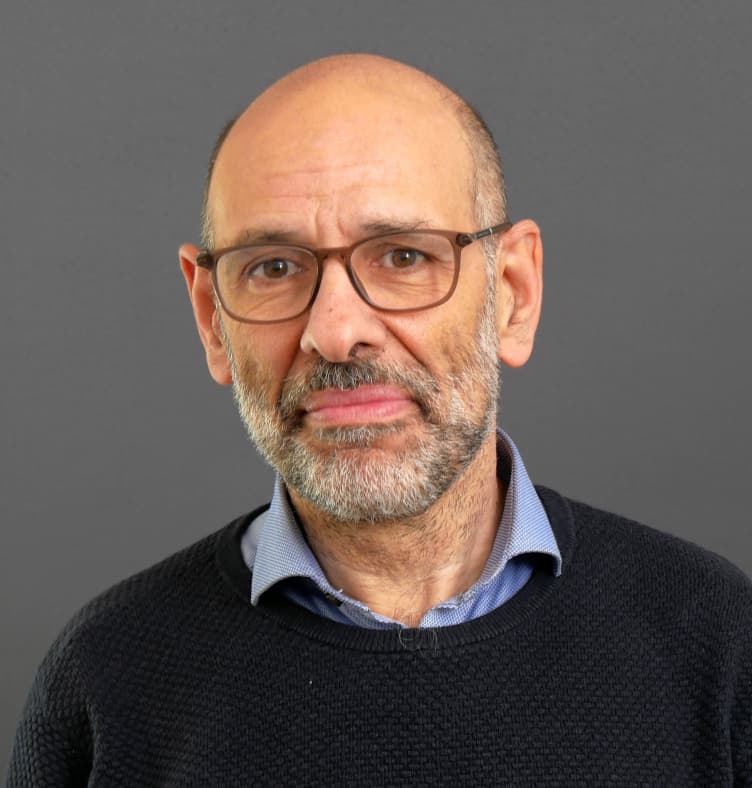Photo by Jim Høyer, University of Copenhagen.
©All rights reserved.
Since my last message for the Magazine, the world has seen much change and the world of academia is not going unaffected. It may be argued that academic freedom is being challenged in new and unsuspected ways. This will of course have a ripple effect on the entire academic world, but mathematics will also be affected, and the EMS views these developments with concern. It is crucial for EMS to stand up for academic freedom and academic values and to unite with academics all over the world where such values are being questioned. The EMS also sees diversity, in particular, regarding gender, race, geography, and scientific subjects, as part of its core values. This view has guided some of our recent successful initiatives such as the formation of the young academy EMYA, the topical activity groups (TAGs), and the general support within the EMS for open science.
For now, Europe is only indirectly affected, but changing policies and financial priorities may soon have an effect on us too. We, of course, have our own problems in Europe. British universities are seeing serious financial problems. Some mathematics departments have been singled out for severe personnel cuts. EMS and many of our member societies have joined the London Mathematical Society in attempts to prevent this. I hope we can all make a difference. This is probably much more difficult in Ukraine where the situation is unfortunately not improving and the conditions for everyone, including academics, are hard to imagine.
Speaking of diversity let me turn for a moment to an issue that has been a focal point of discussion within the EMS. Our society has always held the ambition to encompass all aspects of mathematics, from the purest to the most applied. I am actually not particularly fond of these terms as I believe adding adjectives to “mathematics” to create classifications divides rather than unites. I understand that these terms may sometimes be useful in defending underrepresented groups, and this is an important reason not to disregard them entirely, though they may prove less productive in the long term, and in general we hope to see a celebration of mathematics that embraces all its beauty and diversity without the need for narrow categorization. Therefore, I am a strong supporter of EMS being diverse and inclusive, and I am proud that it is. There has been some criticism that the EMS could do even more for diversity and that we should keep broadening our perspective on mathematics. This is certainly our ambition and I hope we will continue to be successful in being a society for all mathematicians and that all mathematicians feel that we speak for them and have something to offer across the full spectrum of mathematics. We can of course only be successful in doing so if we all start thinking more of mathematics as a unified field and less of its fragmentation.
EMS is considering its social media presence in particular regarding the platforms X and Facebook. We have opened an account on Bluesky with the goal of possibly leaving X. The EMS is not off X yet, and I would like to take this opportunity to encourage all of you to follow us on Bluesky whether or not you are already following us on X.
In my last message I thanked all the new chairs of our standing committees. Since then Ann Dooms, professor at the Department of Mathematics & Data Science at the Vrije Universiteit Brussel, has accepted to chair the Education Committee. I welcome Ann as chair of the committee, and I am looking forward to working with her on the many important challenges facing mathematics education across Europe and the world in general.
Finally, I hope you have enjoyed receiving the email updates with news from the EMS. I am grateful to Enrico Schlitzer, our Community Engagement Manager, for putting these together.
Jan Philip Solovej President of the EMS
All rights reserved.
Dear readers of the EMS Magazine, in this issue you can find many interesting contributions in the usual sections on discussions, societies, education, book reviews, and one more article by one of the 2024 EMS Prize winners, this time written by Jacek Jendrej.
In no way disparaging the other contributions, I would like to highlight the articles “An introduction to the mathematics in the Alhambra of Granada” by Miguel Ortega and “Mathematics as seen by an artist: Inspiring mathematical objects” by Stéphane Vinatier and Reg Alcorn. With these papers the Magazine joins the celebration of the International Day of Mathematics,1https://www.idm314.org whose theme for 2025 is: Mathematics, Art and Creativity. In this regard, I also invite you to take a look at the illustration created by Coni Rojas-Molina and at the Magazine cover illustration by António B. Araújo.
Finally, with the current issue three new editors are starting their duties in the editorial board: Bruno Teheux, who will reinforce the Features and Discussion team, Michele Coti Zelati, who will be responsible for the Book Review section, and Vladimir Tsanov, who will take care of the Solved and Unsolved Problems section. A short biographical note of each of them can be found at the end of the issue. I thank them and I am grateful to them for accepting to dedicate part of their time to our Magazine.
Happy reading!
Donatella Donatelli Editor-in-chief
Cite this article
Jan Philip Solovej, Donatella Donatelli, A message from the president//Brief words from the editor-in-chief. Eur. Math. Soc. Mag. 135 (2025), pp. 3–4
DOI 10.4171/MAG/250

